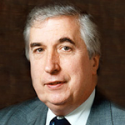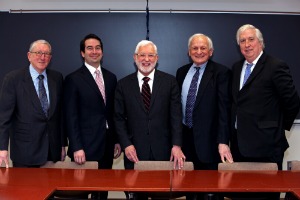After the Supreme Court’s unanimous decision in Carpenter v. United States,[1] the federal mail and wire fraud statutes became potent prosecutorial weapons against insider trading when the information-owner is the victim. This post examines how criminal liability under the …
A recent decision from the United States District Court for the Southern District of New York allowing a U.S. Securities and Exchange Commission (SEC) civil enforcement action to proceed against two former stockbrokers for alleged insider trading violations sheds additional …
If a party obtains information about a public firm before its initial public offering (IPO), and the party themselves is not an insider of the firm, should they be allowed to profit from the information after the IPO? We investigate …
Yesterday and today, we are running a number of posts related to the recent United States v. Newman decision in which the Second Circuit overturned the convictions for insider trading and conspiracy to commit insider trading of Todd Newman and …
In its recent decision in United States v. Newman,[1] the United States Court of Appeals for the Second Circuit provided important guidance on the scope of insider trading liability. The case concerned the liability of two hedge fund …
The recent reversal of convictions of hedge fund managers Todd Newman and Anthony Chiasson highlights the weakness of using a common law approach when interpreting Rule 10b-5 to reach remote tippees accused of insider trading. The decision reinforces the need …
If someone had asked me back in the mid-1980s whether an insider trading case required proof that the tippee was aware that the tipper was acting for personal gain, I would have said yes without much hesitation, because that’s what …
Among several independent holdings stated by the court on its way to reversing the convictions of Todd Newman and Anthony Chiasson, the Newman court declared that: “in order to sustain a conviction for insider trading [against a remote tippee], the …
Everyone can thank Preet Bharara for one thing. His swath of insider trading prosecutions is forcing amplification of the law, especially the criminal law of insider trading. That body of law has been underdeveloped and at times stagnant. The Second …
United States. v. Newman[1] represents the most serious defeat for the DOJ and the SEC in their campaign against insider trading since Dirks v. SEC[2] in 1983. In both cases, mistakes were made, and the Government did not …
The Second Circuit, in U.S. v. Newman raises likely insurmountable burdens for prosecutors to pursue remote tippees. Newman causes even greater harm to the public interest in fair capital markets by making it impossible to pursue the true violator, the …
On February 21, United States District Court Judge Jed S. Rakoff, federal prosecutor Reed Brodsky, and defense attorney Gary Naftalis, came together to discuss the Gupta insider trading case with Columbia Law School students in a seminar called Corporations in …
The current scope of the insider trading prohibition is arbitrary and unrationalized. Both sides in the debate should be able to agree on this, as the current scope is at the same time both underinclusive and overinclusive. On the one hand, if a thief breaks into your office, opens your files, learns material, nonpublic information, and trades on that information, he has neither breached a fiduciary duty nor “feigned fidelity” to the source and is presumably immune from insider trading liability under current law. On the other hand, if an employee of an acquiring firm seeks to test out information about a potential target with a friend at a major investor in the target and that investor later acquires more stock in the target based on that conversation, it is possible under SEC v. Obus that the employee will be deemed to have violated Rule 10b-5 on theory that he made a gift of the information, even though no payment or economic benefit is paid to the alleged tipper. This is considerably grayer behavior than that of the thief. Thus, drawing lines so that the thief escapes liability, while the inquiring employee does not, seems morally incoherent. Nor are such lines doctrinally necessary.
William Cary’s opinion for the SEC in In re Cady, Roberts & Co. built the foundation on which the modern law of insider trading rests. Today, we have a stable framework of three distinct legal theories—the classical theory, the misappropriation …
More than 30 years have passed since I completed the interviews for the first edition of The Transformation of Wall Street.
My interview with Bill Cary on October 28th and 29th, 1980 was particularly memorable. I …

 Sky Blog
Sky Blog











